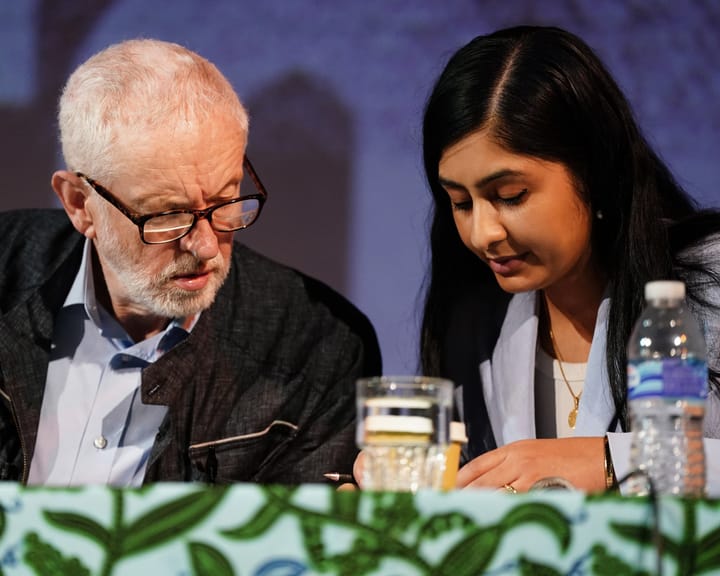At 9:30 a.m. on Monday, as lawmakers returned to Westminster, Keir Starmer assembled the full staff of No. 10 in the Pillared Room of Downing Street to announce that they were entering a new phase of governance.
“We move forward into this next stage with confidence and determination,” he said, while some in the room shifted uncomfortably. His words followed a difficult summer in which Labour lost ground to Reform UK and ahead of what could be an even more chaotic autumn.
With Starmer under pressure to demonstrate control, the remainder of his planned reset week went poorly. The resignation of Angela Rayner as his deputy has dealt the most significant blow yet to the already struggling prime minister.
In past interviews, Rayner described Starmer as “the yin to my yang,” acknowledging that while they were an unlikely political pairing, they balanced each other well.
She was everything Starmer was not—politically perceptive, a strong communicator, a genuine working-class voice, a fierce critic of Reform, and well-liked by lawmakers, party members, and unions. Despite occasional tensions, her absence will be deeply felt.
No one in Labour—including Rayner herself—believed she had any choice but to step down. Even without the finding that she had violated the ministerial code, it would have been unsustainable for a housing secretary who failed to pay the correct stamp duty to remain in office.
Starmer had always insisted there would be no exceptions. “People will only trust that we’re changing politics when I dismiss someone immediately. If a minister breaks the rules seriously, they’re out—no matter who they are,” he had told his biographer Tom Baldwin before the election.
Rayner is the fifth—and by far the most senior—minister forced to resign due to misconduct since Starmer took office. She had also been one of the loudest critics of Conservative scandals, often accusing them of double standards. Now, those same accusations are being turned against her.
While Labour’s efforts to present itself as more ethical than the previous government have already been undermined by debates over perks, the biggest consequence of this latest dispute may be reinforcing the widespread belief that politicians serve their own interests.
Her resignation also complicates matters for Rachel Reeves as she prepares her autumn budget. With the Treasury struggling to find up to £40 billion to balance finances, introducing new property taxes on higher-value homes, or broader changes to property levies, will be a tougher proposition.
Labour’s general secretary has confirmed there will be an election to choose Rayner’s successor.
Read next

"Widow to forfeit half of pension scam compensation to taxes"
The relatives of a man who lost his retirement savings after becoming entangled in the Norton Motorcycles pension scheme fraud are set to forfeit nearly half of their compensation due to an obscure tax regulation.
After a prolonged effort to secure payment from the Fraud Compensation Fund (FCF), Robert Dewar’

"Has Kemi Badenoch Ended One Nation Conservatism?"
In one interpretation of the Conservative Party's electoral successes, its last three victorious leaders—John Major, David Cameron, and Boris Johnson—each entered Downing Street promoting unity and broad-based principles.
However, this year's gathering of Conservative members has been defined by tougher language on asylum policies

Zarah Sultana and Corbyn reconcile, poised to co-lead new party
Zarah Sultana and Jeremy Corbyn Reconcile Ahead of New Political Group Launch
Zarah Sultana has stated that she and Jeremy Corbyn have resolved tensions in their joint leadership of a new political initiative, comparing their dynamic to that of the Gallagher brothers from Oasis.
Speaking alongside Corbyn at the *World

